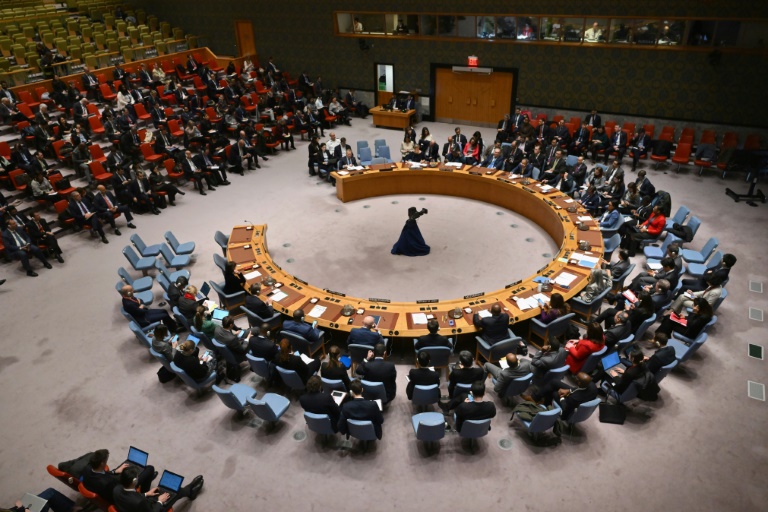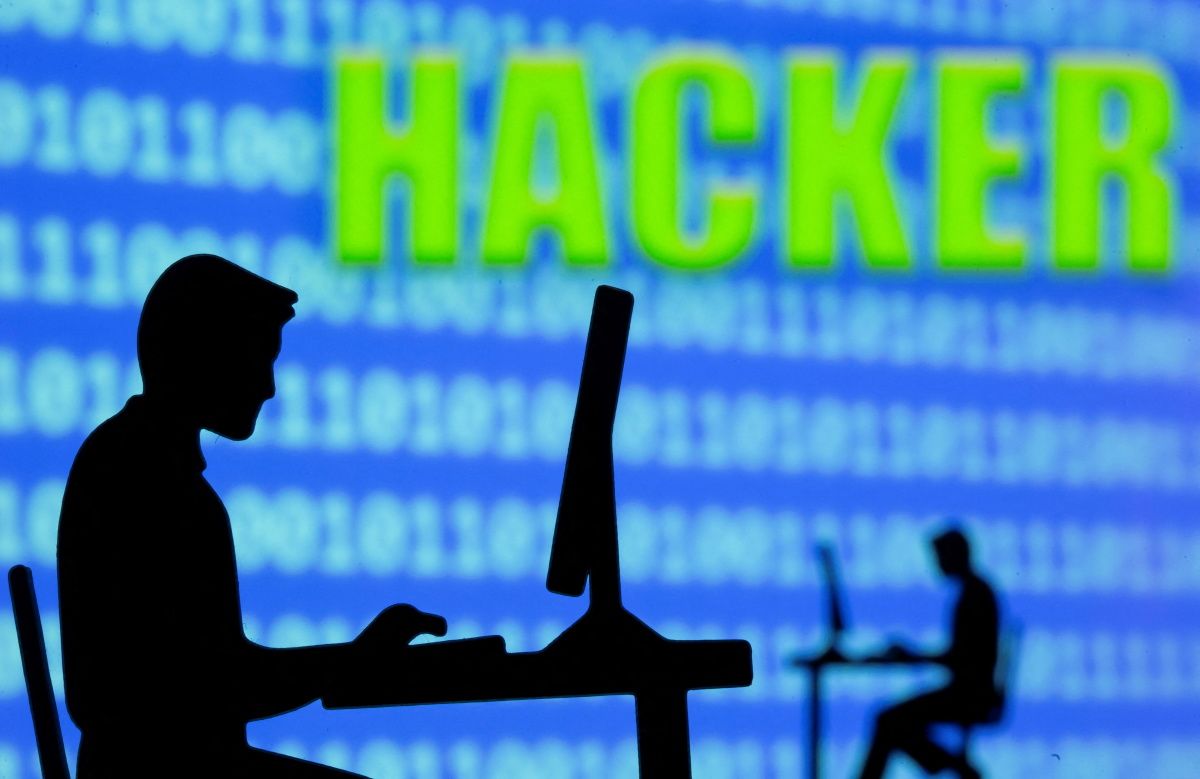After more than five months of war, the UN Security Council for the first time Monday demanded an immediate ceasefire in Gaza after the United States, Israel’s ally which vetoed previous drafts, abstained.
Drawing unusual applause in the normally staid Security Council, all 14 other members voted in favor of the resolution which “demands an immediate ceasefire” for the ongoing Islamic holy month of Ramadan.
The resolution calls for the truce to lead to a “lasting, sustainable ceasefire” and demands that Hamas and other militants free hostages seized in their October 7 attack that triggered the massive Israeli military campaign.
“The bloodbath has continued for far too long,” said Amar Bendjama, the representative of Algeria, the Arab bloc’s current member of the Security Council and a sponsor of the resolution.
“Finally, the Security Council is shouldering its responsibility,” he said.
The United States had repeatedly blocked Security Council resolutions that put pressure on Israel but has increasingly shown frustration with its ally as civilian casualties mount and the United Nations warns of impending famine in Gaza.
Prime Minister Benjamin Netanyahu last week vowed to defy US appeals and expand Israel’s military campaign to Rafah, the southern Gaza city where some 1.5 million Palestinians have taken shelter.
Moments after the United States declined to veto the latest resolution, Netanyahu announced that he would no longer send to Washington a delegation requested by President Joe Biden to discuss Rafah.
The resolution “gives Hamas hope that international pressure will allow them to accept a ceasefire without the release of our abductees,” Netanyahu said.
The White House insisted that its abstention did not signal a policy shift.
US Ambassador to the United Nations Linda Thomas-Greenfield, who had previously warned that pressure on Israel would jeopardize ongoing talks, said that Hamas must now accept a deal being brokered by Qatar with support from Egypt and the United States to free hostages.
“A ceasefire can begin immediately with the release of the first hostage,” Thomas-Greenfield said. “This is the only path to securing a ceasefire.”
She called on all nations to “speak out and demand unequivocally” that Hamas accept the deal and again accused Russia and China of failing to offer more than “rhetoric” to address the crisis.
The United States on Friday put forward a resolution that would have included a call for an immediate ceasefire but linked it more explicitly to the hostage release. Russia and China vetoed it, calling the language too vague.
On Monday, Russia introduced an amendment to add a call for a “permanent” rather than “lasting” ceasefire but the vote failed and Moscow still voted for the resolution.
“The word ‘lasting’ could be interpreted in various different ways, and that is very telling. Those who are providing cover for Israel still want to give it a free hand,” said Russia’s ambassador, Vasily Nebenzia.
France said that the resolution ended the “deafening silence” by the Security Council on Gaza but called for work on a permanent ceasefire once Ramadan ends in around two weeks.
“This crisis is not over,” said France’s UN representative, Nicolas de Riviere.
Slovenia, which along with Switzerland played a key role in securing passage of the resolution, called the vote “an important day” for the people of the Middle East.
“We will need more of this unity for Gaza as well as for many other conflicts,” said Slovenia’s representative, Samuel Zbogar.
The October 7 attack by Hamas, the deadliest in Israel’s history, resulted in the deaths of about 1,160 people, mostly civilians, according to an AFP tally of Israeli figures.
The militants also seized 250 hostages, of whom Israel believes around 130 remain in Gaza, including 33 presumed dead.
Israel responded by vowing to eliminate Hamas. Its Gaza campaign has killed more than 32,000 people, mostly women and children, according to the health ministry in the Hamas-run territory.
The Security Council has been divided over the war, previously only approving two of eight resolutions, which both mainly dealt with humanitarian aid.
Those resolutions had little effect on the ground, where UN personnel say Israel continues to block aid convoys.






